At the end of 2013, a number of housing-related tax provisions expired. Collectively, these housing and other tax rules are part of a set of policies known as “tax extenders,” which have traditionally been extended every year or so.
While there is growing support for extending most, if not all, of these provisions, a potential debate on comprehensive tax reform may delay any Congressional effort to extend these rules. If such a delay carries through until late 2014, perhaps in a lame duck session after the election, then it is possible that a future extension may not be retroactive for 2014. In the past, Congress has enacted retroactive extensions, but such actions cannot be relied on for the future.
Thus, homeowners, builders, remodelers, and other real estate professionals are well advised to consider that it is possible that these provisions may not be part of 2014 tax law.
Another complicating factor for the tax policy agenda in 2014 is the news that Senate Finance Committee Chairman Max Baucus will be resigning to become the U.S. ambassador to China. While it is expected that Senator Ron Wyden will become the next chairman of the committee, what impact this transition will have on tax extenders is uncertain.
The following housing or real estate related tax provisions expired at the end of 2013:
Housing Rules
- Mortgage debt forgiveness tax relief: rule that prevents tax liability arising from many short sales or mitigation workouts involving forgiven, deferred or canceled mortgage debt.
- Deduction for mortgage insurance: reduces the after-tax cost of buying a home when paying PMI or insurance for an FHA- or VA-insured mortgage; $110,000 AGI phase-out.
- The section 25C energy-efficient tax credit for existing homes: remodeling market incentive with a lifetime cap of $500.
Business Rules
- The section 45L new energy-efficient home tax credit: allows a $2,000 tax credit for the construction of for-sale and for-lease energy-efficient homes in buildings with fewer than three floors above grade.
- The 9% LIHTC credit rate: absent the credit fix, the LIHTC program would suffer a loss of equity investment for affordable housing projects; in place for 2013 allocations.
- Base housing allowance rules for affordable housing: income definition rules.
- The section 179 small business expensing limits: offers cash flow and administrative cost benefits for small firms, with limits of $500,000 for deductions and $2 million for capital purchases.
- The section 179D deduction: provides a deduction for some energy-efficient upgrades to multifamily and commercial properties.
- New Markets Tax Credit: no new allocations of this community development tax credit.
NAHB Eye on News – Posted by Robert Dietz
